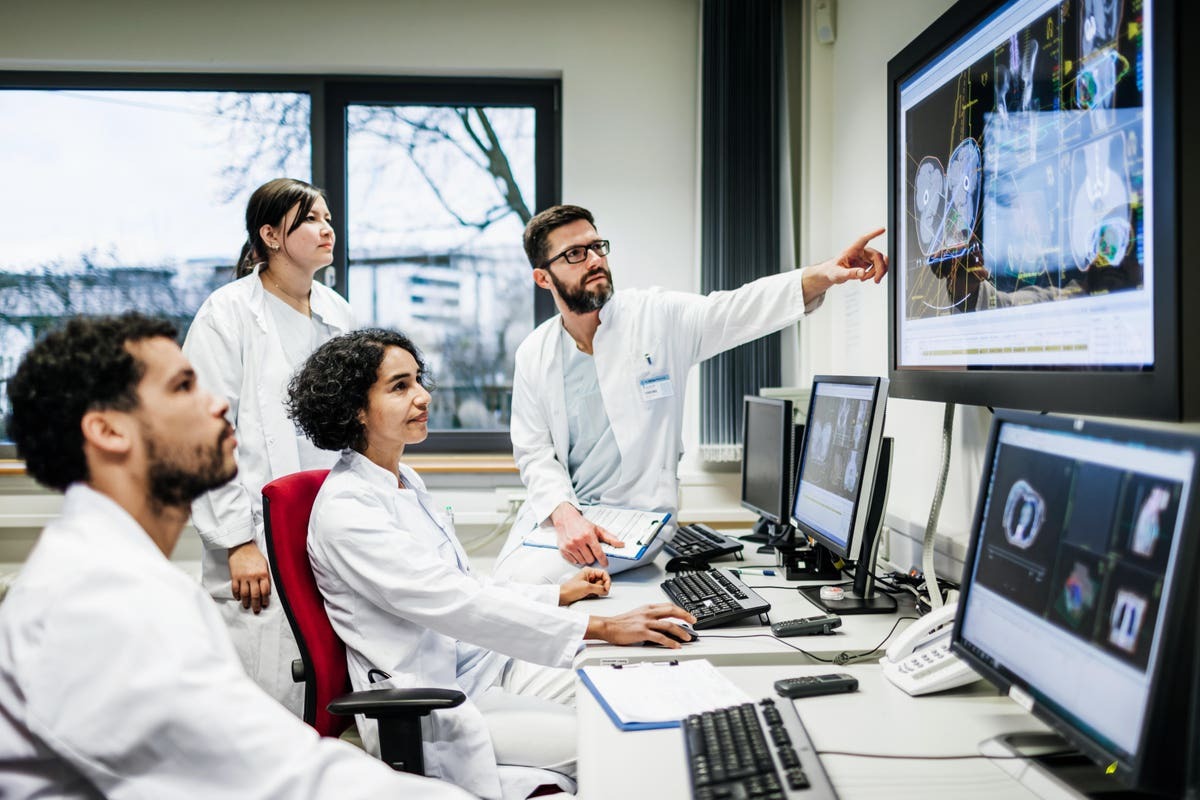
@ShahidNShah


There's no denying that technology amplifies the power of humanity. We see it in our homes with automatically adjusting thermostats, in our cars with AI-powered brakes and in our phones with supercomputing capabilities. That also extends to the world of healthcare. The industry has invested deeply in tools to diagnose and treat medical conditions more accurately, which has helped to more than double life expectancy over the past century. Now we need to adopt a new mindset around harmonizing how humans and machines work together. From my perspective, the largest challenge we have today globally in healthcare is patient access because we don't have enough physicians or nurses to serve everybody how we need to. Enter generative AI. As reported by Becker's Hospital Review, research by Accenture, where I'm a global health industry lead, shows that 98% of healthcare providers and 89% of healthcare payer executives believe generative AI advancements "are ushering in a new era of enterprise intelligence." In today's workforce-challenged environment, generative AI's ability to liberate clinical resources from administrative burdens can allow healthcare professionals to focus on their core expertise and spend more time with patients and care teams.
In the realm of healthcare, the judicious integration of generative AI holds transformative potential, but its implementation demands a circumspect approach. Firstly, a meticulous curation of high-quality training data, encompassing diverse patient demographics and conditions, is paramount. This fosters the model's aptitude for nuanced decision-making. Secondly, an iterative validation process, harmonizing AI-generated outputs with domain experts' insights, affords a checks-and-balances system, enhancing clinical relevance. Lastly, an adaptive framework accommodating ethical considerations and regulatory obligations ensures patient data privacy and safeguards against bias propagation. By adhering to these practices, hospitals and health-tech innovators can harness generative AI's true prowess, paving a progressive path toward refined healthcare outcomes.
Continue reading at forbes.com
Levita Magnetics has achieved a significant milestone with FDA clearance for its pioneering abdominal surgery platform, which seamlessly integrates proprietary magnetic surgical technology with …
Connecting innovation decision makers to authoritative information, institutions, people and insights.
Medigy accurately delivers healthcare and technology information, news and insight from around the world.
Medigy surfaces the world's best crowdsourced health tech offerings with social interactions and peer reviews.
© 2025 Netspective Foundation, Inc. All Rights Reserved.
Built on Apr 25, 2025 at 12:44pm